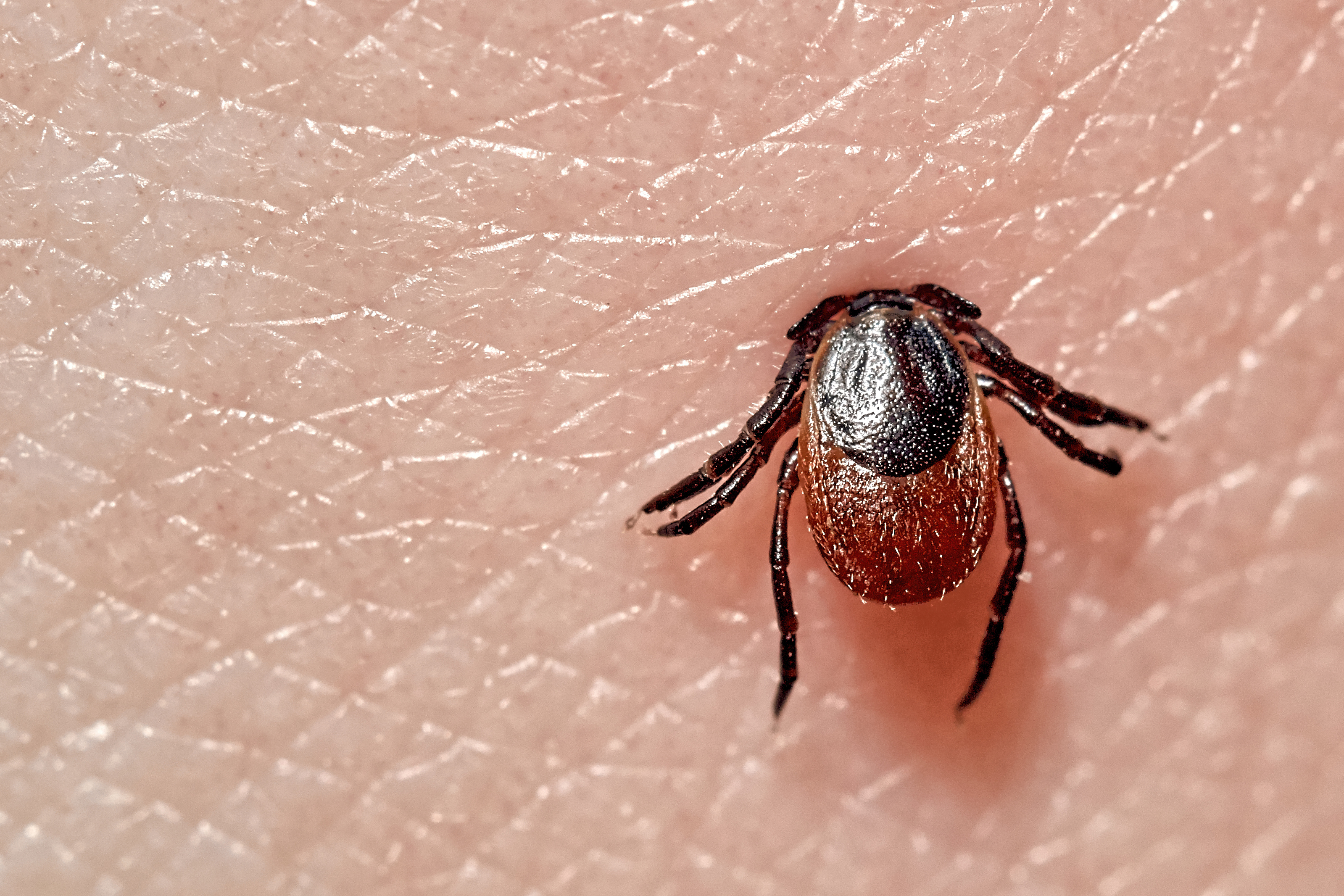
(Vienna, 27 May 2025) A research team involving the Medical University of Vienna has summarised the novel findings on the immunomodulatory effect of tick saliva in a review paper. The work, published in the renowned journal Frontiers in Immunology, shows how bioactive molecules in tick saliva influence the host's immune system, facilitate disease transmission and at the same time offer potential for novel therapeutic applications.
As a result of climate change, ticks are spreading around the world, leading to an increase in the incidence of tick-borne infectious diseases such as Lyme disease and tick-borne encephalitis (TBE). In their current work, MedUni Vienna researchers led by Johanna Strobl from MedUni Vienna's Department of Dermatology have been working intensively on the mechanisms that enable ticks to remain on the host for a long time and transmit pathogens.
Tick saliva as an immunosupressant
"Just seconds after a tick bite, the animal releases its saliva into the host's skin," explains Johanna Strobl, "the bioactive molecules it contains cause the blood vessels to dilate, inhibit blood clotting and suppress inflammatory reactions. This not only weakens the host's immune defences, allowing ticks to cling on for longer, but also increases the likelihood of infection by pathogens." Nevertheless, it is precisely these mechanisms that hold promising prospects for medicine: "Certain tick proteins could be used as innovative treatment approaches for inflammatory skin diseases or autoimmune diseases."
Research into anti-tick vaccines intensified
In view of the increasing spread of ticks, researchers are increasingly focussing on the development of a widely applicable anti-tick vaccine. The first promising candidates have already been identified in recent studies. For example, immunisation with certain tick saliva proteins in animal experiments led to an increased immune response, more difficult blood uptake by ticks and reduced transmission of pathogens such as borrelia.
New therapeutic approaches using tick saliva
In addition to vaccines, research is also focussing on the therapeutic use of tick saliva proteins. Certain protease inhibitors from tick saliva have shown promise in initial studies for the treatment of chronic inflammatory skin diseases such as psoriasis or autoimmune diseases such as systemic lupus. They could be developed as new drugs to specifically modulate inflammatory reactions and minimise the side effects of conventional therapies.
Research into tick saliva is still in its infancy, but the latest findings show the great potential of these molecules for medicine. Using state-of-the-art methods such as proteomics and machine learning, further bioactive substances could be discovered and utilised for therapeutic purposes in the future. The interdisciplinary collaboration between immunology, molecular biology and bioinformatics could lead to groundbreaking progress in the fight against tick-borne diseases and in the development of new treatment approaches.
Publication: Frontiers in Immunology
Ticks' tricks: immunomodulatory effects of ixodid tick saliva at the cutaneous tick-host interface
Lisa Kleissl, Sophie Weninger, Florian Winkler, Margarida Ruivo, Michiel Wijnveld and Johanna Strobl
doi: 10.3389/fimmu.2025.1520665

After activation, data will be sent to YouTube. Further information here: Data protection